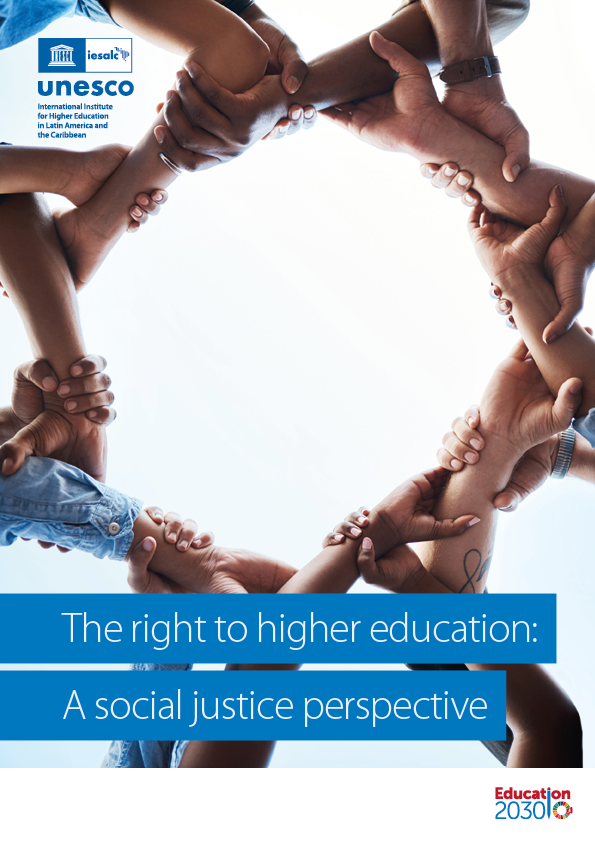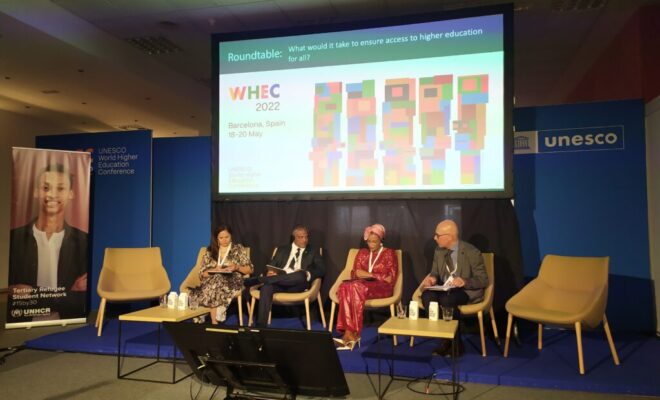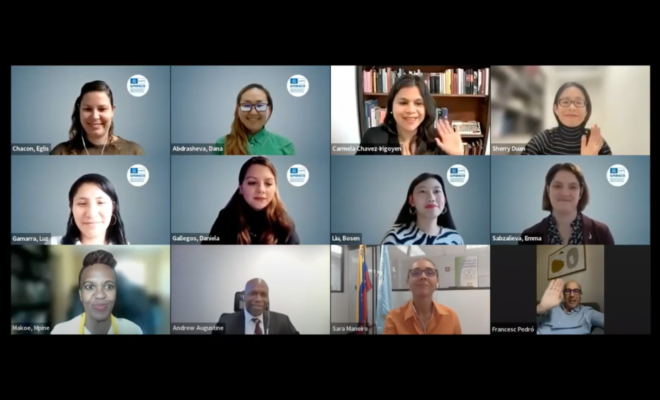The right to higher education approached through a social justice lens
- Access to higher education has expanded but remains inequitable
- The right to higher education must be upheld as an integral part of the right to education at all levels and throughout life
- Systems and structures need to be transformed put all students at the heart of higher education

UNESCO IESALC has created a new social justice framework that emphasizes the need to make structural and systemic transformations put all students with diverse backgrounds and needs at the heart of higher education.
The right to education was established in the Universal Declaration of Human Rights in 1948. However, the right to higher education has received less attention than other levels, even though it is a public good that should be available to all as part of the lifelong process of learning.
In a new conceptual paper published today, UNESCO IESALC has put the new framework into action. The framework applies a social justice lens to the right to higher education through four interrelated dimensions: 5As (Availability, Accesibility, Acceptability, Adaptability, Accountability), inclusive excellence, equity deserving groups and insersectionality.
“The terminology of equity deserving groups retains this focus on the need to transform structures, underscoring that it is not students who are at fault but the systems that have let them down. Identifying and acknowledging the intersectionality of many students, especially those who are equity deserving, ensures that both barriers and solutions to the RTHE are appropriately crafted.”
Report The right to higher education: a social justice perspective
The framework is then applied to the processes in higher education that relate to the right to higher education. This starts even before higher education with access to quality school education and connects to the need for fair access to higher education. Once in higher education, the emphasis is on success: how to support students’ full participation and provide good quality and relevant higher education. The framework also considers institutional policies and administrative arrangements, financing, and the need to translate these processes across borders.
By applying the social justice framework to the right to higher education, three areas of growing concern are identified, which must be addressed to make higher education truly a right to be enjoyed by all throughout life:
- Rethinking ‘merit’: enhance the quality of schooling to support all types of learners to widen the pipeline and adopt positive discrimination policies for equity deserving groups.
- Funding higher education: Higher education should be provided to all for free, beginning by targeting equity deserving groups. Private activity should be regulated to ensure quality and avoid profit being made from higher education.
- Assuring students’ rights in a global context: Reduce administrative and financial barriers for those forced to leave their home country. Ratify the Global Convention on the Recognition of Qualifications and relevant Regional Conventions.
This conceptual paper forms part of a project dedicated to the right to higher education launched by UNESCO IESALC in 2021 and is situated within UNESCO’s overall efforts to enhance the right to education at all levels.
Download the full paper: The right to higher education: a social justice perspective
https://unesdoc.unesco.org/ark:/48223/pf0000381750
RELATED ITEMS








